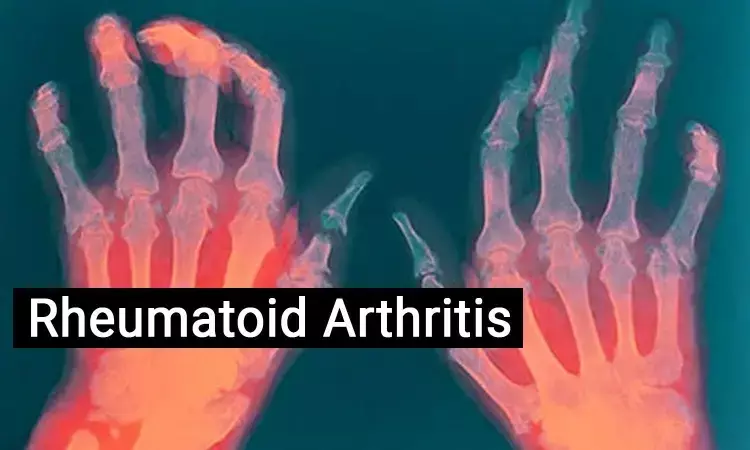- Home
- Medical news & Guidelines
- Anesthesiology
- Cardiology and CTVS
- Critical Care
- Dentistry
- Dermatology
- Diabetes and Endocrinology
- ENT
- Gastroenterology
- Medicine
- Nephrology
- Neurology
- Obstretics-Gynaecology
- Oncology
- Ophthalmology
- Orthopaedics
- Pediatrics-Neonatology
- Psychiatry
- Pulmonology
- Radiology
- Surgery
- Urology
- Laboratory Medicine
- Diet
- Nursing
- Paramedical
- Physiotherapy
- Health news
- Fact Check
- Bone Health Fact Check
- Brain Health Fact Check
- Cancer Related Fact Check
- Child Care Fact Check
- Dental and oral health fact check
- Diabetes and metabolic health fact check
- Diet and Nutrition Fact Check
- Eye and ENT Care Fact Check
- Fitness fact check
- Gut health fact check
- Heart health fact check
- Kidney health fact check
- Medical education fact check
- Men's health fact check
- Respiratory fact check
- Skin and hair care fact check
- Vaccine and Immunization fact check
- Women's health fact check
- AYUSH
- State News
- Andaman and Nicobar Islands
- Andhra Pradesh
- Arunachal Pradesh
- Assam
- Bihar
- Chandigarh
- Chattisgarh
- Dadra and Nagar Haveli
- Daman and Diu
- Delhi
- Goa
- Gujarat
- Haryana
- Himachal Pradesh
- Jammu & Kashmir
- Jharkhand
- Karnataka
- Kerala
- Ladakh
- Lakshadweep
- Madhya Pradesh
- Maharashtra
- Manipur
- Meghalaya
- Mizoram
- Nagaland
- Odisha
- Puducherry
- Punjab
- Rajasthan
- Sikkim
- Tamil Nadu
- Telangana
- Tripura
- Uttar Pradesh
- Uttrakhand
- West Bengal
- Medical Education
- Industry
Hormone replacement therapy and early menopause tied heightened risk of rheumatoid arthritis

China: A long-term study published in the open-access journal RMD Open has revealed an association of some hormonal and reproductive factors with a higher risk of rheumatoid arthritis (RA).
"Early menopause-before the age of 45-taking hormone replacement therapy (HRT), and having 4 or more children are among several hormonal and reproductive factors linked to a heightened risk of rheumatoid arthritis in women," the researchers reported.
Women are more susceptible to this autoimmune disease than men, note the researchers. They are 4-5 times as likely as men to develop rheumatoid arthritis under the age of 50, and twice as likely to do so between the ages of 60 and 70. And the disease seems to take a greater physical toll on women than it does on men.
While hormonal and reproductive factors are thought to contribute to women’s heightened susceptibility to the disease, it’s not entirely clear which factors might be particularly influential.
In a bid to find out, the researchers drew on 223,526 UK Biobank participants whose health was tracked for an average of 12 years.
During this time, 3313 (1.5%) women developed rheumatoid arthritis, and several hormonal and reproductive factors were associated with heightened disease risk, after accounting for potentially influential factors, such as lifestyle, level of social and economic deprivation, ethnicity and weight (BMI).
Starting periods after the age of 14 was associated with a 17% higher risk when compared with starting them at the age of 13, while going through the menopause below the age of 45 was associated with 46% heightened risk compared with going through it at the age of 50-51.
Fewer than 33 reproductive years—defined as the interval between starting periods and going through the menopause—was associated with a 39% heightened risk. And compared with having 2 children, 4 or more was associated with an 18% higher risk.
Hysterectomy or removal of one or both ovaries (oophorectomy) was associated with 40% and 21% higher risks, respectively, although only a few women had these procedures.
While no clear association emerged between the use of the Pill and rheumatoid arthritis risk, HRT use and to a lesser extent, its duration, were associated with, respectively, 46% and 2% higher risks.
This is an observational study, albeit over a reasonably long period, and therefore can’t establish cause and effect, and the researchers acknowledge various limitations to their findings.
For example, the UK Biobank is made up of relatively healthy and affluent people of white ethnic background, so isn’t representative of the UK population at large.
Nevertheless, the findings prompt the researchers to suggest that hormonal and reproductive factors should be carefully evaluated in women diagnosed with rheumatoid arthritis.
And they conclude: “The findings of this study are significant and form a basis on which novel and target-specific intervention measures to curb the risk of [rheumatoid arthritis] in women may be developed.”
Reference:
Jiang, L-Q., et al. (2024) Hormonal and reproductive factors in relation to the risk of rheumatoid arthritis in women: a prospective cohort study with 223 526 participants. RMD Open. doi.org/10.1136/rmdopen-2023-003338.
Dr Kamal Kant Kohli-MBBS, DTCD- a chest specialist with more than 30 years of practice and a flair for writing clinical articles, Dr Kamal Kant Kohli joined Medical Dialogues as a Chief Editor of Medical News. Besides writing articles, as an editor, he proofreads and verifies all the medical content published on Medical Dialogues including those coming from journals, studies,medical conferences,guidelines etc. Email: drkohli@medicaldialogues.in. Contact no. 011-43720751


